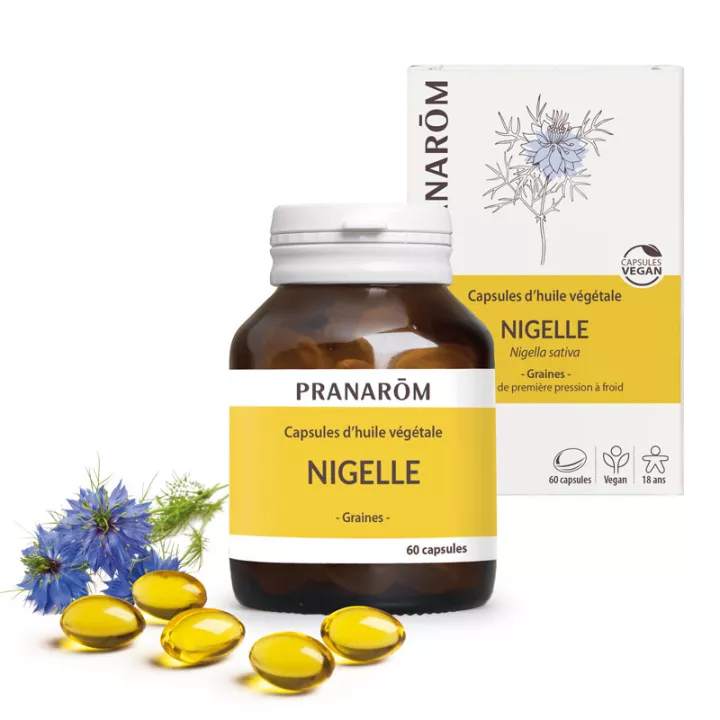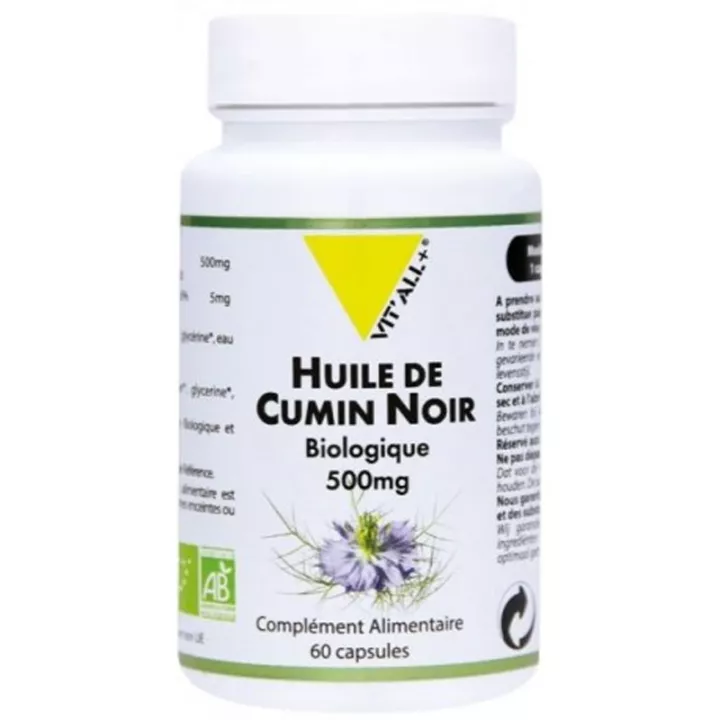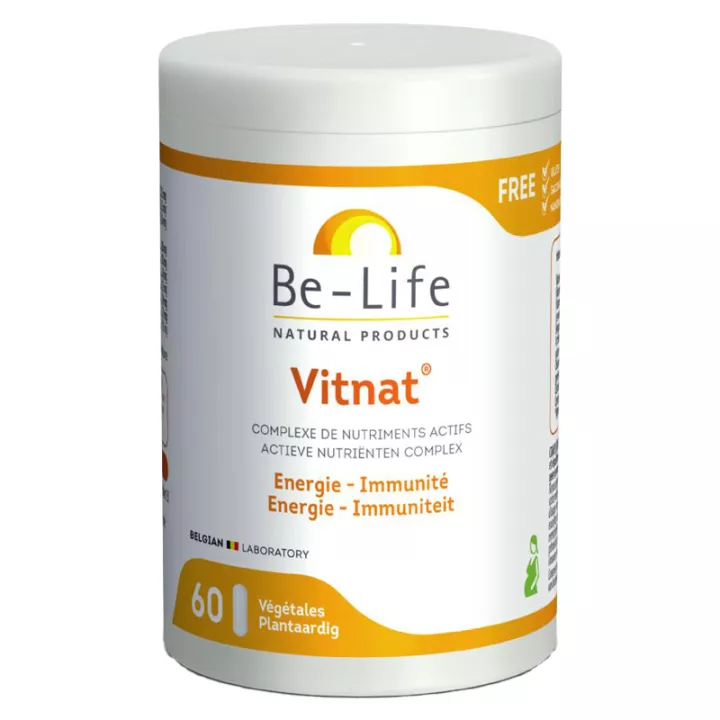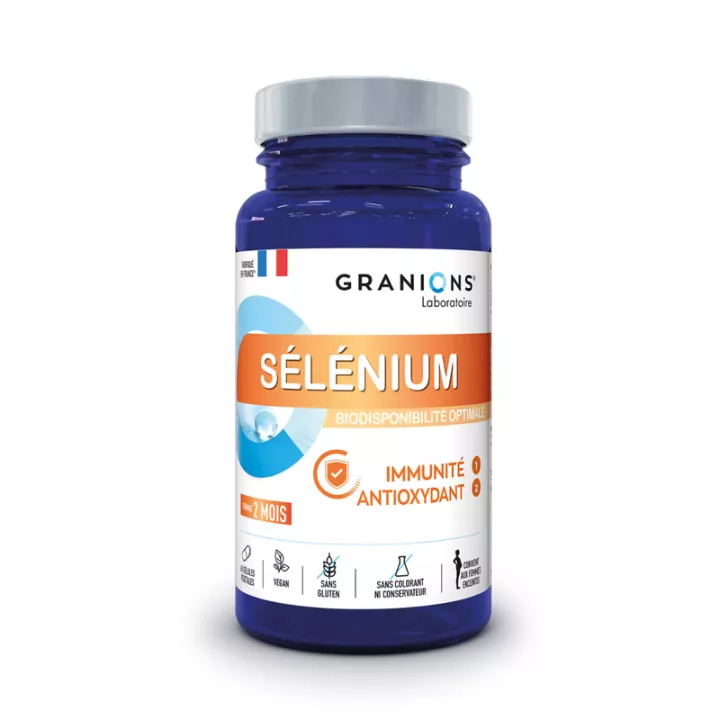What is the purpose of Pranarom Capsules d'huile végétale de Nigelle Bio 60 capsules?
Historically speaking, black cumin has been used for thousands of years; it is even said that seeds were found in Tutankhamen's tomb. Mentioned by the Hippocratics (5th-4th centuries B.C.), the ancients saw black cumin as an aperitive, diuretic, attenuating and incisive, finding application in catarrhal pulmonary affections and to induce menstruation.
Pranarôm organic black cumin oil capsules are a precious source ofantioxidants and essential fatty acids, known to support the immune system and promote general well-being. Thanks to its rich omega-6 and thymoquinone content, black cumin oil helps strengthen natural defenses, soothe digestive discomforts and preserve skin balance.
In addition to its action on immunity, black cumin oil is renowned for its purifying and soothing properties on the skin. It is ideal for sensitive skin prone to imperfections or redness. What's more, its composition helps regulate the digestive system and improve intestinal comfort, reducing discomfort linked to bloating or digestive imbalances.
Formulated in practical, easy-to-swallow capsules, these black cumin oil pearls offer a simple, effective treatment to take full advantage of its benefits, without any pronounced taste. Certified 100% organic, they guarantee optimum purity and quality for better assimilation by the body.
The aromatherapy laboratory Pranarom also offersvegetable oil with vanilla extract at the best price in our online pharmacy.
How do I use these vegetable oil capsules?
From age 18: 2 to 4 capsules per day.
Duration of treatment: 1 to 3 months.
Give your opinion on the advice for use and dosage of Pranarom Capsules d'huile végétale de Nigelle Bio 60 capsules with our partner Verified opinions after your purchase.
What are the contraindications?
- Keep out of reach of young children
- Do not exceed recommended dose
- Keep away from heat and light.
- This product is not a medicine
- It is not a substitute for a varied, balanced diet and a healthy lifestyle.
- The unrefined cold-pressed oil of this plant is unstable and, in high doses, not suitable for consumption by vulnerable groups:
- People under 18 years of age
- Pregnant or breast-feeding women
Pranarom's organic Nigella vegetable oil capsules offer a convenient and precise way to consume this beneficial ingredient. Each capsule contains a precise amount of black cumin oil, guaranteeing an optimal concentration of active ingredients. They can be taken orally with a glass of water, according to the manufacturer's recommendations for use. The capsules are convenient to take along and can be easily integrated into your daily wellness routine.
FAQ - Your Questions, Our Answers
How do I take the capsules?
We recommend taking 2 to 3 capsules a day with a full glass of water, as part of a course of treatment lasting several weeks.
Are these capsules suitable for allergy sufferers?
Black cumin oil may contain natural components that can provoke allergic reactions in certain sensitive individuals. Consult a health professional if in doubt.
Can they be used on the skin?
Yes, by acting from within, these capsules contribute to the balance and health of the skin, particularly for sensitive skin or skin prone to imperfections.
What are the ingredients?
Nigella sativa*; Starch gelatin (tapioca starch), Glycerine; Water; Antioxidant: tocopherol-rich extract.
*Ingredient from organic farming.
Presentation - Packaging:
Bottle of 60 capsules










